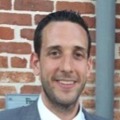Rare Cancer, Rare Resolve: How One Entrepreneur Found Perspective and Persevered Through a Devastating Diagnosis
August 14, 2025
Published in:
Successful attorney and Entrepreneurs’ Organization member Mohamed Hashish endured years of surgeries, setbacks, and uncertainty — emerging with a renewed purpose to lead, mentor, and champion others facing adversity.
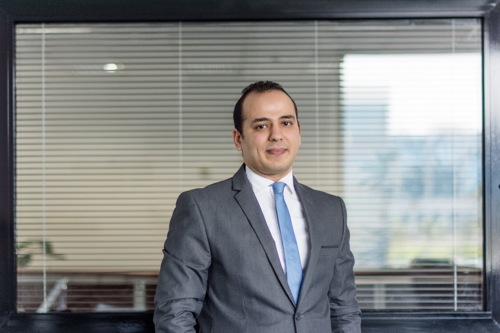
Mohamed Hashish (EO Cairo and EO Dubai)
In 2018, Mohamed Hashish woke from his third brain surgery clinging to only the tiniest strands of hope. His left ear had gone silent. His face was partially paralyzed. His balance remained unsteady. Still, he was alive.
Mohamed — today an Entrepreneurs’ Organization (EO) member through both Dubai and Cairo chapters and founder of Soliman, Hashish & Partners — was already more than a year into a life-altering journey. He launched his firm in Cairo in 2014, having built a reputation for precision and doggedness in the world of international corporate law. His work regularly garnered accolades from prominent industry groups. He had a new wife, Randa, and a young baby girl, Khadijah.
Then, one morning, he awoke with searing pain in his left ear. What ensued was a medical marathon through ever-shifting terrain: a misdiagnosis that nearly cost him his life, three complex brain surgeries in Europe, the harrowing discovery of an extremely rare and aggressive form of sarcoma pressing against his brain stem. “The doctors told me, ‘You should not be here,’” Mohamed recalls.
And yet, driven by love for his family and devotion to his work, he has endured.
Humble Beginnings
Raised in Egypt, his father a police officer, Mohamed lacked the pedigree and connections that helped many in the country’s elite legal and business circles get their start. Early on, though, he learned that hustle could substitute for inheritance. He earned his legal degree in 2004 and quickly climbed the ladder in corporate law. Still, he felt the itch to innovate and strike out on his own. He leaned into technology and built a pioneering legal resource website back in 2008, which was the country’s first ever online guide to navigating regulations in telecommunications and media sector. Not long after, representatives from AT&T reached out, expressing interest in his expertise.
“It was a shock,” Mohamed says. “They did not hesitate to engage with us. That moment is when I realized that this is the way I can attract clients.”
Emboldened, he launched his firm in 2014. Some longtime clients from his previous job followed him to his new firm, and bigger ones found him on their own. “I did not expect that we would have that start,” he says, “but I had spent years building trust.”
Then, not long after launching his firm and subsequently getting married, he awoke to that pain in his ear. Egyptian doctors initially waved off his symptoms; a prominent neurosurgeon there even dismissed his need for an MRI. When Mohamed insisted on a scan, a misdiagnosis followed — it was only a blood clot, they said. He used his MRI results to seek a second opinion from a physician in the U.S. and only then did the truth emerge: A brain tumor was pressing on the nerves responsible for hearing and balance. He needed surgery immediately.
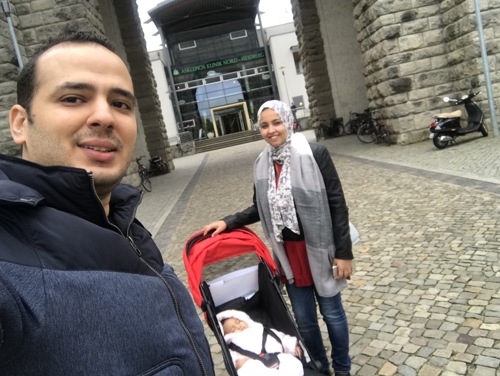
Mohamed and his family prior to his first surgery.
He researched treatment options and settled on a well-regarded hospital in Germany for his first operation. After surgery, doctors there told him the mass was merely a noncancerous growth that they were able to remove, and the biopsy came back negative. A month later, though, a crippling migraine struck, and he lost his hearing completely. Doctors told him these were expected side effects of invasive brain surgery, but the complications never abated. Another MRI revealed a massive hematoma and that the tumor had returned. Worse, it was triple the size of the original. A second operation brought little relief.
By then, Mohamed had lost faith in his doctors in Germany, and he found another specialist in Zurich to take on his case. The team there was unable to remove the tumor in a subsequent operation, but a genetic test on its tissue revealed that it was an ultra-rare form of sarcoma, seen in fewer than 100,000 patients globally. No clear treatment protocol existed; even among the world’s top oncologists, answers proved scarce.
Through it all, Mohamed never pressed pause on his professional life. Even in the hours before his operations, he found himself answering emails and leading conference calls. Constantly venturing back and forth between Egypt and Europe, he fought through hearing loss, migraines, and facial and vocal cord paralysis. “I am addicted to work,” he says, almost apologetically. “Even the first thing I did when I woke up in the ICU, I texted my team: ‘I am here. Where do things stand?’”

Even after a third lengthy surgery, Mohamed's symptoms did not abate.
Taking a Holistic Approach
By December 2018, he was sleeping nearly 20 hours a day. His doctors concluded a fourth surgery would be futile and they had exhausted all their options. Physicians from France, Spain, the United States, and United Kingdom concurred. “All of them told me it’s a hopeless case,” he says.
Rather than yield, Mohamed turned into a medical researcher. He scoured studies. He connected with other patients who were battling the same condition. In addition to taking experimental medication, he overhauled his lifestyle, embracing a ketogenic diet focused on limiting inflammation, getting more consistent sleep, and cutting back on work and stress after having been accustomed to toiling from dawn to dusk. “I needed to fight for myself,” he says. “I needed to fight for my family. I needed to fight for my business,”
After getting knocked down so many times, he finally started to win the fight. During a checkup a month later, his oncologist in Zurich sprinted into the waiting room after he examined Mohamed’s latest MRI results: At long last, the tumor had begun to shrink.

“I needed to fight for myself. I needed to fight for my family. I needed to fight for my business.”
- Mohamed Hashish
(EO Cairo and EO Dubai)
After a few years of relative normalcy, the tumor progressed again in 2022. Based on his own research and genetic test results, Mohamed learned that, improbably, a breast cancer drug might help combat it. After initial resistance from hospital’s medical committee regarding the experimental treatment, his doctor in Zurich was able to convince them to let him try. Soon, the tumor shrunk to nearly a tenth of its original size. “I had a deep feeling it would work,” Mohamed says. “I started to feel normal again.”
Seeking Sustainability
As he recovered, Mohamed realized that his firm had become overly reliant on his willingness to work untold hours. He has garnered a slew of accolades and represented more than 700 multinational clients across a range of business sectors but knew he needed to find a more sustainable approach. So, like with his cancer, he dove into research, hoping to find a community of peers who could help him learn to make that transition. That is how he found EO.
The subsequent conversations he had with members of his Forum in EO’s Cairo chapter have helped him learn to take a more sustainable, balanced approach to his company and his work. Mohamed also engaged in EO’s global mentorship program, devoting time every week to imparting lessons to an EO member in the U.S.
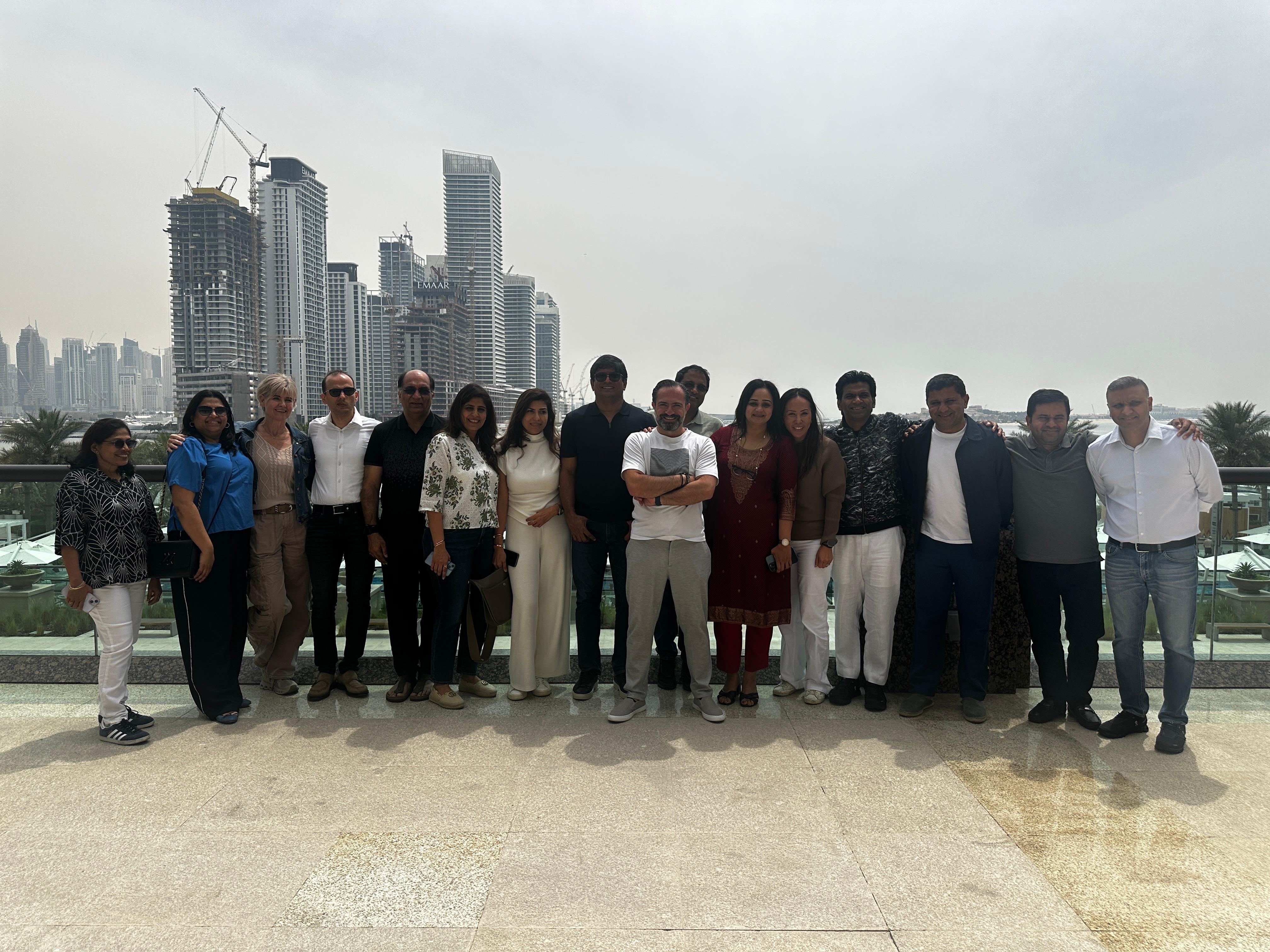
Mohamed and fellow members of the EO Dubai Board.
Meanwhile, the family relocated. Randa is an IBM lead legal counsel for the Middle East and Africa, and when she was offered a promotion that would mean moving to Dubai, the young family jumped at the chance to put her career first. Mohamed joined Dubai chapter (while remaining a member of the Cairo chapter) and is now EO Dubai’s MyEO chair.
Still, the damage from his medical ordeal lingers. Hearing loss. Facial paralysis. Fatigue. The disabilities have left him feeling sometimes excluded from business meetings and opportunities to connect with peers. “I used to love networking,” he says. “Now, background noise makes it impossible to participate in many events.” Rather than retreat, he acted: Earlier this year, Mohamed reached out to EO’s global team to offer his input and insights into how to best engage with and support members with disabilities.
Today, Mohamed has learned to live with his tumor. His medication and diet keep it from growing but necessitate that he regularly monitors his blood sugar. Fall out of the normal range, and the treatment could lose its efficacy. He remains mindful of the moment, hoping to savor every second with family while building a business that can thrive with a new generation of well-trained lawyers — and even without his presence.
“We take things for granted, but we need to live moment by moment, second by second,” he says. “We are here for a reason. We have a responsibility to our families, to our teams, and to our communities. That is what I focus on.”

Mohamed with his daughter, Khadijah.
 More Entrepreneurial Journeys
More Entrepreneurial Journeys
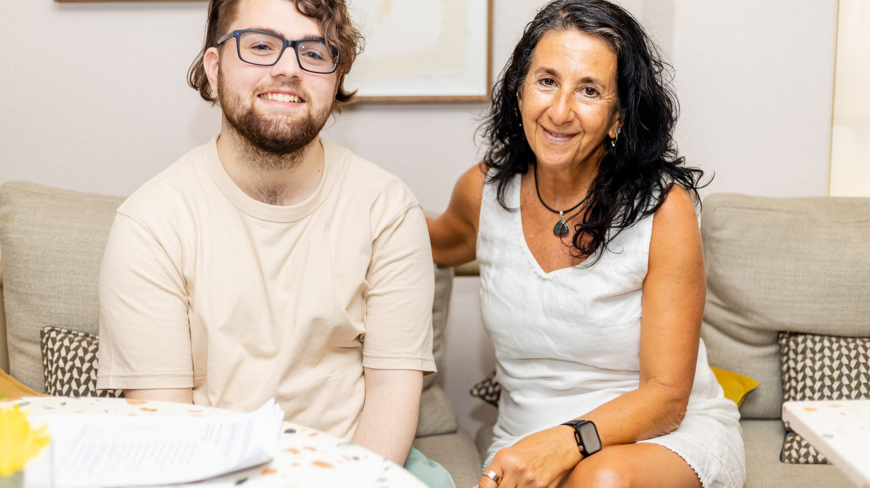
Neurodivergent Teen Started a Company that Transformed His Pain into Purpose
Long chastised by peers for his differences, Kai Seymon’s fidget tool business became a seven-figure success that earned him recognition on the world stage when he was runner-up at this year’s Global Student Entrepreneur Awards.
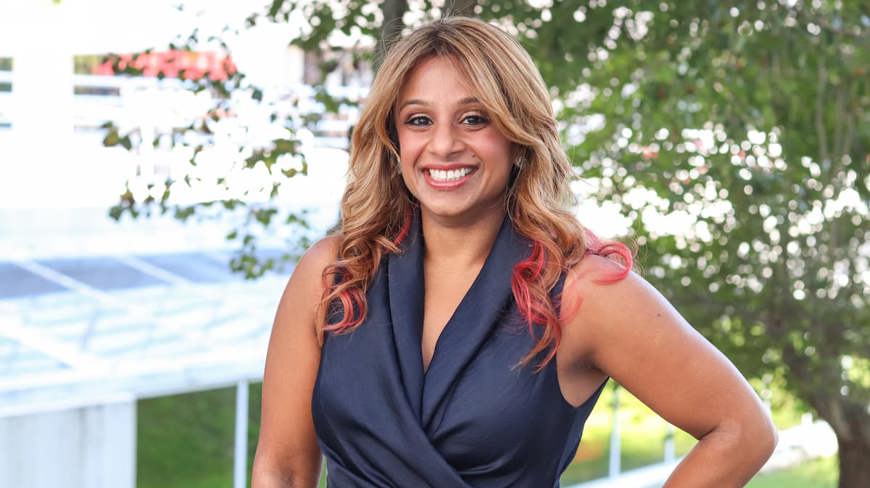
How a Young Mother Rebuilt a Life and Business After Loss
After her husband and business partner died unexpectedly, Sejal Lakhani-Bhatt leaned on friends, family, and her Entrepreneurs’ Organization community to save her company and learn to heal.
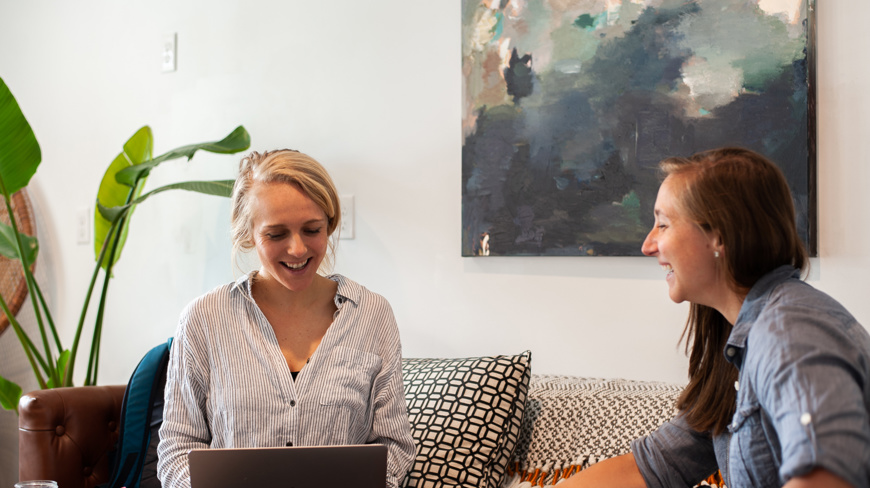
How Two College Teammates Navigated the Shift from Friends to Co-founders
Hannah Lee (EO Nashville) and Jess Vossler (EO Columbus) forged a lasting bond on the lacrosse field that they parlayed into a business built on shared values and ambitions.
